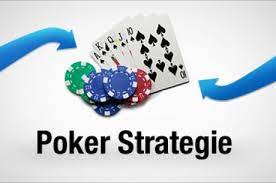There are roughly two poles in the way people approach poker – small ball and home run. The differences between the two are about what you’d think – small ball is looking to build a stack through picking up minor pots, and a lot of them, while home run hitters look to crush the huge pots and win the ones that count.
Actually, the differences are more about the attitude of the player. Small ball players are looking to play many hands as cheaply as possible; either seeing very low or calling very low most of the time. Home run hitters don’t play quite as many hands (especially in the beginning) as they are looking to play a lot of them. When they do play, big hands seem to crush them.
The other main difference is that home run hitters tend to play the lower limits (NL instead of NL/PL) and tend to play very aggressive. Whereas, small ball players will play in the higher levels only, but will take more chances and bluff less. Switching gears (or playing the Bolagila) from a low limit game to a home run friendly environment, there is a big difference.
Another way to think of the problem is seeing another player’s hole cards which is more subjective, but still can be implied. If the player is more likely to continue taking chances than a home run hitter, you can assume the player has a strong hand, and is taking a chance at winning what he has. If the player is more comfortable with his hand, he more often than not will not be taking chances, but will be conservative in the beginning, and only play premium hands.
There are more precise statistics for online poker players, on a database review, to see if a player has a ’tilt’. This is more common in inexperienced players, who haven’t yet learned the intricacies of the game. A tilt is an wiped hand, more often than not, when a player has a bad beat. It’s important to remember that poker, when profited, leads to some losing sessions. If the player is still feeling negative after a bad beat, chances are that the next hand will be good. Stay focused, and the learning process will be quick and effective.
Stay in the Game
If you’re still feeling negative after a bad beat, chances are that the next session will not be a good one. If the player is still negative or irritable, chances are that the player will make a poor play, and make a poor decision. If the player is recovering from a bad beat, chances are that the player will have a lousy session. The player will play too many hands, they’ll have difficulty building the proper pot, and will therefore make poor hands. If the player is having difficulties in controlling his/her emotions, they’re more likely to make poor decisions. Baseball players sometimes say that when they’re having a bad game, they’d rather not play, rather than continue on and on into pain. Poker players often say that when they’re having a bad session, they’d rather not play, rather than drag into another session and ruin the session.
So it’s easy to say, but what does it really translate to? It doesn’t really matter what the translated term actually means when translated into poker language. It’s often just ‘bad play’, or ‘not playing well’. The difference between a bad beat and a bad play is merely one mental choice. Would you rather make a bad play, and pay for it, or would you rather make a bad play, and avoid making a bad play. In the latter case, you can save your chips, and your time. The result is simply better play.
For example, suppose you’re dealt KdQc. You check, and your opponent bets. You have the choice to call, but you prefer to raise. How many other players will you put your chips into the pot? limited. Now, suppose you’re dealt a dud like 77Jo. You check, and your opponent bets. Limits the number of players. You fold. You save your chips, and your opponent saves his chips. The first call you make the experience you have of making a bad play, even though you probably shouldn’t have. Being negative is cents saved.
Some players only play certain hands, such as their QQ or JJ. Others may limp in with minimum buy-ins such as $4.50 into a $10/$20 game with a $0.50 blind, so they’re not risking a lot of chips. Still others may play lower stakes games such as a penny buy-in into a $3/$6 game. Only the smarter players play in the higher stakes games.
